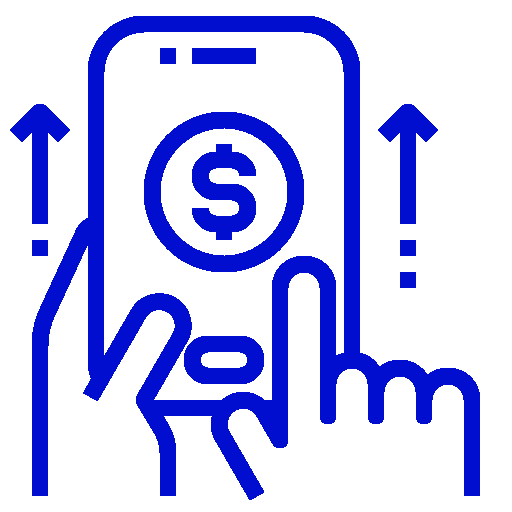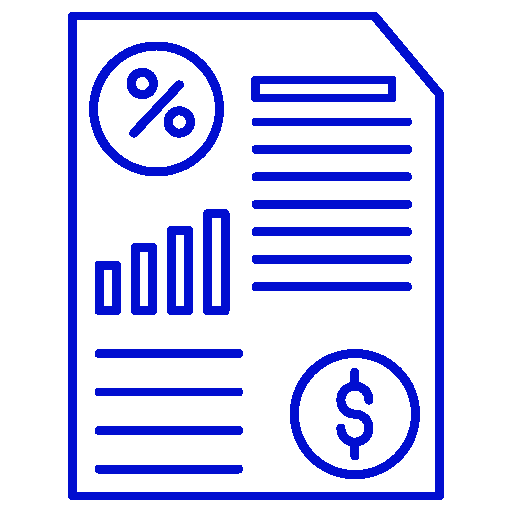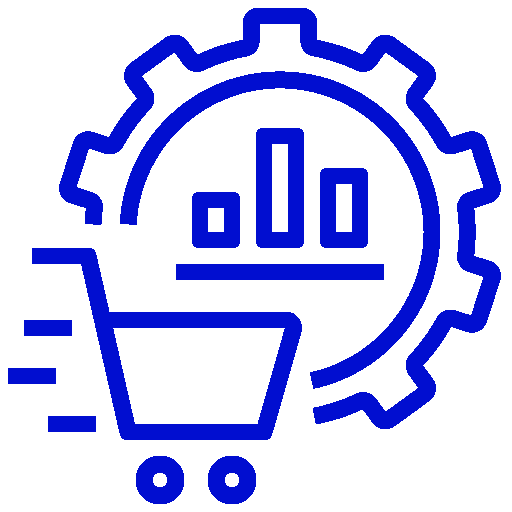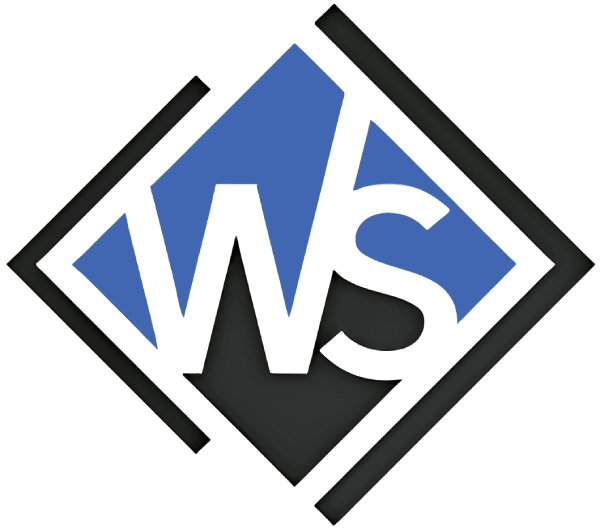Transform Your Business with Web Switch Ecommerce Website Solution
Robust Security with Advanced Encryption
Integrated SSL, PCI compliance, and data encryption safeguard customer information, ensuring a secure and trusted shopping environment.
Enhanced Product Filtering & Search
Advanced search capabilities and filtering options help customers quickly find products, improving usability and increasing purchase likelihood.
Intelligent Inventory Management
Integrated inventory systems automatically update stock levels, prevent overselling, and keep customers informed of product availability.
Mobile-Optimized Responsive Designs
Fully responsive designs ensure an excellent shopping experience on any device, increasing accessibility and conversion rates.
Our Approach to E-commerce Websites We Develop
Our approach to e-commerce websites combines cutting-edge technology with a tailored strategy to deliver a seamless, high-performing, and secure online platform. We begin by analyzing your business objectives and target audience to craft an intuitive, responsive design that enhances customer engagement and maximizes conversions. Leveraging advanced features like CDN integration for optimized load times, SSL encryption, and PCI-DSS compliance, we ensure your site is secure and dependable. Our development process includes custom API integrations for seamless connections with CRM, ERP, and analytics tools, as well as scalable microservices architecture that supports growth as your business evolves. With enhanced product filtering, AI-driven recommendations, and omnichannel payment gateways, we streamline operations and improve the user experience. Our comprehensive approach provides a powerful, scalable foundation that adapts to the fast-paced demands of e-commerce, helping you stay competitive and ready for future growth.
Comprehensive E-Commerce Solutions to Power Your Online Success
End-to-End E-Commerce Solutions
We offer a complete suite of e-commerce development services, from strategy and planning to design, development, testing, and deployment. Our team works closely with you to ensure that every aspect of your online store meets your business needs and exceeds your customers' expectations.
Custom E-Commerce Design
First impressions matter. Our design team creates beautiful, responsive designs that capture the essence of your brand and attract customers. Every design element is thoughtfully crafted to enhance engagement, from the homepage to product pages and checkout screens.
Multi-Platform Integration
An e-commerce website is only as effective as its integration with other essential platforms. We integrate your site with popular tools for CRM, ERP, payment gateways, and third-party apps, ensuring seamless workflows and improved customer experience.
Content Management Systems (CMS)
Manage your website’s content effortlessly with our integrated CMS solutions. We make it simple to update product information, add blog posts, and adjust pages, giving you control over your e-commerce store’s content without needing technical knowledge.
Features of E-commerce Websites

Product Management
- Unlimited Products Add as many products as you need, enabling easy catalog expansion as your business grows.
- Product Variation Offer multiple versions of a product (e.g., color, size), giving customers more choices and boosting sales potential.
- Grouped Products Bundle related items to encourage larger purchases, ideal for creating sets or themed collections.
- Tags, Categories, and Attributes Organize products for easy searching and filtering, making it simple for customers to find what they need.

Inventory Management
- Stock Tracking Monitor stock levels in real-time to stay updated on product availability.
- Low Stock Notification Set alerts for low stock, so you know when to reorder, preventing sales disruptions.
- Backorder Management Manage backorders efficiently, allowing customers to order items that are temporarily out of stock.
- Inventory Reports Access reports on stock levels and product performance, helping you make informed restocking decisions.

Payment Processing
- Credit Card & Debit Card Processing Allow customers to pay securely using major credit and debit cards.
- Offline Payment Option Support payments through bank transfers or checks for customers who prefer offline methods.
- Flexible Payment Gateways Connect with trusted gateways, making payments safe and straightforward for customers.
- Multi Currency Support Accept payments in different currencies, expanding your reach to international customers.

Shipping and Delivery
Offer flexible shipping and delivery options to suit different locations and customer needs. A customizable approach enhances the shopping experience by providing clear and convenient options.
- Flexible Shipping Rates Configure rates based on weight, quantity, or location, allowing for transparent and customer-friendly pricing.
- Shipping Zones Set specific rates by region, enabling optimized delivery for local, national, or international orders.
- Local Pickup Offer in-store or local pickup for customers nearby, providing a convenient delivery alternative.
- Shipping Class Create shipping categories (e.g., bulky, fragile) to apply special rates, helping you control costs.

Tax Management
- Automatic Tax Calculation Calculate taxes based on customer location, saving time and reducing errors.
- Custom Tax Classes Set tax rates for different product types, simplifying the process of managing diverse tax requirements.
- Inclusive or Exclusive Pricing Display prices inclusive or exclusive of taxes to align with customer expectations.
- Detailed Tax Reporting Access tax reports for better compliance and easier preparation during tax season.

Order Management and Fulfillment
- Order Tracking Monitor orders from start to finish, ensuring you’re informed about each stage of fulfillment.
- Automated Notifications Send automated email updates to customers for order confirmations, shipping, and status changes.
- Easy Refund & Returns Process refunds and manage returns quickly, providing flexibility for customers.
- Order Status Management Update and manage order statuses, making it easy to track progress and communicate with customers.

Personalized Product Recommendations
- Dynamic Product Suggestion Display personalized product suggestions on the homepage, product pages, and checkout based on user behavior.
- Recently Viewed Items Show customers their recently viewed items to encourage them to revisit and buy products.
- Behavioral-Based Recommendations Use browsing and purchase patterns to suggest products tailored to individual customers’ preferences.
- Cross-Selling and Upselling on Checkout Page Customize the checkout page to display relevant add-ons or upgrades, increasing the average order value.

Dynamic Pricing and Discounts
- Tiered Pricing Set up tiered pricing based on quantity, offering discounts for bulk purchases (e.g., 10% off for orders over 10 items).
- Conditional Discounts Apply discounts based on conditions, such as customer location, time of day, or shopping cart contents.
- Member-Only Pricings Create exclusive pricing tiers for members or loyal customers, encouraging repeat business.
- Scheduled Promotions Schedule price changes or discounts for future events (e.g., flash sales), automatically updating prices at specific times.

Cart Management
- Easy Cart Editing Allow customers to add, remove, or adjust item quantities directly from their cart, providing flexibility before checkout.
- Automatic Cart Updates Automatically update cart totals as items are added or removed, giving customers a clear view of their total costs.
- Save Cart fo Later Enable customers to save their cart and return later, helping them complete purchases at their convenience.
- Cart Summary at Checkout Display a summary of items at checkout, allowing customers to confirm details before finalizing their purchase.

Abandoned Cart Management
- Automated E-mail reminders Send personalized emails to remind customers about items left in their cart, encouraging them to complete their purchase.
- Cart Recovery Analytics Track abandonment rates and recovery success, helping you refine strategies to convert more carts into sales.
- Incentivized Follow Ups Offer discounts or free shipping to encourage customers to return and complete their orders.
- Cart Retention Retain items in the cart for a specified period, making it easy for returning customers to pick up where they left off.

Customer Accounts and Personalization
- Guest Checkout Enable purchases without registration, reducing barriers to completing orders.
- User Registration Allow customers to create accounts, encouraging repeat visits and loyalty.
- Account Management Customers can view order history, update information, and manage addresses easily.
- Personalized Shopping Experience Use account data to suggest products or provide exclusive offers, enhancing customer engagement.

Analytics and Reporting
- Sales & Revenue Tracking Access reports to monitor revenue and sales performance over time.
- Product and Category Insights Analyze top-performing products and categories to inform inventory and marketing decisions.
- Customer Behavior Analysis Segment customers and study buying patterns for targeted marketing efforts.
- Inventory Reports View stock levels and product turnover, helping you plan for restocking and promotions.
More advance features
Personalization and AI-Driven Recommendations
Augmented Reality (AR) Shopping Experiences
Voice Commerce Integration
Headless E-commerce Solutions
Customer Data Platform (CDP) Implementation
Advanced Search and Filter Options
Subscription and Membership Models
Conversion Rate Optimization (CRO)
Advanced Analytics and Reporting
Supply Chain and Inventory Management Automation
Blockchain for Secure Transactions
Social Commerce Integration
Technologies we use
React
Vue.js
Next.js
Angular
Svelte and SvelteKit
Gatsby.js
Node.js
Django
Spring Boot
Laravel
ASP.NET Core
Golang
Serverless Architecture
Microservices Architecture
Headless CMS
MySQL
PostgreSQL
SQLite
MongoDB
Cassandra
Redis
Google BigQuery
Amazon Aurora
Microsoft Azure Cosmos DB
WordPress
Joomla
Drupal
Wix and Squarespace
Adobe Commerce (Magento)
Headless CMS (e.g., Strapi)
Shopify
What clients say about our E-commerce Website Development Service


The flow of work at Web Switch
Discovery and Requirement Analysis
- Technical Audit and Feasibility Study: Evaluate existing tech stack, performance benchmarks, and scalability requirements.
- Feature Mapping and Specifications: Define specific e-commerce requirements like inventory management, payment processing, and CRM integration.
Architecture and Infrastructure Planning
- Scalable Architecture Design: Select microservices or modular monolithic architecture based on projected traffic and business requirements.
- Cloud and CDN Setup: Implement AWS, Google Cloud, or Azure with a CDN (such as Cloudflare) to ensure low latency and high availability.
- Database Structuring: Plan for a scalable database structure, like MySQL or PostgreSQL, with optimization techniques such as indexing and caching.
UI/UX Design and Prototyping
- Wireframing and User Flow Optimization: Create wireframes that focus on customer journey optimization and smooth product discovery.
- Responsive and Adaptive Design: Develop prototypes that are fully responsive, adapting seamlessly to various screen sizes and devices.
- Conversion-Focused UI Components: Design with calls-to-action, optimized checkout flows, and micro-interactions to enhance user engagement.
Backend and Frontend Development
- Frontend Development (React/Vue.js): Use a modern JavaScript framework like React or Vue.js for a responsive, fast-loading, and dynamic UI.
- Backend Development (Node.js/PHP/Laravel): Build the backend to support business logic, integrations, and data processing, using a reliable, scalable framework.
- API Integrations: Develop RESTful or GraphQL APIs for CRM, ERP, payment gateways, and third-party apps for a connected experience.
- Headless CMS (Optional): Implement a headless CMS for more control over content management and faster updates.
Advanced Security Implementation
- SSL/TLS and PCI-DSS Compliance: Configure SSL certificates and ensure PCI-DSS compliance to protect customer transactions and data.
- Data Encryption and Tokenization: Encrypt sensitive data, like user credentials and payment details, with techniques like tokenization and hashing.
- WAF and DDoS Protection: Set up a Web Application Firewall (WAF) and DDoS mitigation measures to safeguard the site from attacks.
Shopping Cart and Checkout Development
- Customizable Cart Logic: Develop flexible cart features that handle variations, bundles, and discounts.
- One-Page Checkout and Payment Gateway Integration: Integrate a smooth one-page checkout process with multiple secure payment options.
- Order Management System: Build an efficient order management module to handle order processing, cancellations, and refunds.
Inventory and Database Optimization
- Inventory Management Integration: Connect inventory management with live stock updates, low-stock notifications, and reorder automation.
- Database Optimization: Use indexing, caching, and SQL query optimization for fast data retrieval and reduced server load.
Testing and Quality Assurance
- Load Testing and Performance Optimization: Use tools like Apache JMeter or LoadRunner to test for high-traffic scenarios, adjusting for optimal server performance.
- A/B Testing for UI/UX Enhancements: Run A/B tests on key components, such as calls-to-action and checkout flows, to refine user experience.
- Security Testing: Conduct vulnerability assessments and penetration testing to identify and patch security gaps.
SEO and Analytics Setup
- Technical SEO Implementation: Configure schema markup, meta tags, XML sitemaps, and URL structure for enhanced search engine visibility.
- Analytics and Heatmap Integration: Set up Google Analytics, Hotjar, or similar tools for traffic analysis, user behavior tracking, and conversion rate optimization.
Deployment and Go-Live
- Staging Environment and Final Testing: Deploy the website on a staging environment to conduct final testing before going live.
- CI/CD Pipeline for Ongoing Updates: Implement a Continuous Integration/Continuous Deployment (CI/CD) pipeline to streamline future updates and improvements.
Post-Launch Support and Optimization
- Real-Time Monitoring and Maintenance: Set up server and application monitoring with tools like New Relic or DataDog to track performance and errors in real time.
- Performance Optimization: Continuously optimize performance through regular audits, caching strategies, and codebase improvements.
- Feature Enhancements and A/B Testing: Iterate on features based on user feedback and analytics, with A/B testing to refine the customer experience.
